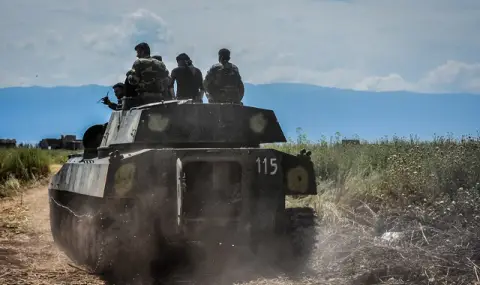Syria's main rebel group has appointed a new prime minister to head the country's transitional government as outside powers begin to take steps to protect their interests after the fall of Bashar Assad's regime, writes in “Guardian“.
In northern Syria, Turkish forces bombed Kurdish targets, and the Turkish-backed Syrian National Army (SNA) clashed with the Kurdish-led Syrian Democratic Forces (SDF), which is backed by the US, the publication said.
Under the leadership of President Recep Tayyip Erdogan, Turkey has long sought to liquidate Kurdish possessions in Syria, writes in. “Telegraph“. Erdogan considers the autonomous Kurdish region of Rojava, established in 2012, a haven for anti-Turkish terrorists, the newspaper noted.
Both the SNA and the SDF are now trying to take advantage of the fall of the Assad regime to expand the territory they control, according to “Telegraph”.
Turkish attacks against the SDF call into question the viability of the US military presence in northern Syria, as well as the existence of the SDF-run prison camps holding “Islamic State” (IS) and their families, writes “Guardian”. The eventual dismantling of Kurdish-run prisons could lead to an increase in the recent resurgence of IS attacks in Syria and possibly beyond, the British publication commented.
Meanwhile, as soon as it became clear on Sunday that there would be a regime change in neighboring Syria, Israel began a large-scale air campaign in the country, writes in. “New York Times“.
The Israeli campaign over the past two days has been extraordinary in its strength and scope in an effort to ensure that whoever eventually succeeds in taking power in Syria is disarmed, the paper said.
It followed months of stepped-up Israeli airstrikes in Syria, including on weapons depots belonging to Iran and Hezbollah, the paper noted, but added that analysts said this week's massive bombing was far more comprehensive and devastating to the military. potential of Syria.
The intensified air campaign, conducted alongside Israel's first ground operation on Syrian soil since the 1973 Yom Kippur War, was condemned by the international community and added another dangerous variable to the rapidly changing situation in Syria, where armed groups are trying to create a new political order after the overthrow of the dictator Assad, writes in “Washington Post“.
Israeli officials described the large-scale strikes as preventive in nature, protecting the country from future attacks, and not as a response to a current threat, the publication said. On Monday, they invoked a similar argument to justify the deployment of their troops outside the UN-controlled buffer zone in the Israeli-occupied Golan Heights, the US capital newspaper noted.
„The Washington Post” quoted former US ambassador to Syria Ryan Crocker as saying that Israel's military operations in Syria risk having “consequences beyond what the Israelis intend”.
Crocker warns that in taking their pre-emptive defensive actions “the Israelis must be very careful not to provoke new aggression directed at them”.
